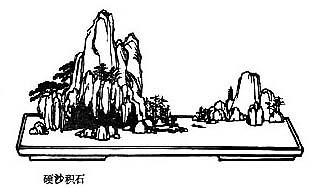孫
子
兵
法
Sun Zi 
 – L'Art de la guerre
– L'Art de la guerre
La stratégie chinoise ou comment s'informer, estimer, diviser, détourner, tromper, et vaincre « sans coup férir ». Tr. Amiot (fr) et Giles (en).
Du plein et du vide
Sunzi VI. 6.
De plus, si, les armées étant déployées, vous n'apercevez pas qu'il y ait un certain vide qui puisse vous favoriser, ne tentez pas d'enfoncer les bataillons ennemis. Si, lorsqu'ils prennent la fuite, ou qu'ils retournent sur leurs pas, ils usent d'une extrême diligence et marchent en bon ordre, ne tentez pas de les poursuivre ; ou, si vous les poursuivez, que ce ne soit jamais ni trop loin, ni dans les pays inconnus. Si, lorsque vous avez dessein de livrer la bataille, les ennemis restent dans leurs retranchements, n'allez pas les y attaquer, surtout s'ils sont bien retranchés, s'ils ont de larges fossés et des murailles élevées qui les couvrent. Si, au contraire, croyant qu'il n'est pas à propos de livrer le combat, vous voulez l'éviter, tenez-vous dans vos retranchements, et disposez-vous à soutenir l'attaque et à faire quelques sorties utiles. Laissez fatiguer les ennemis, attendez qu'ils soient ou en désordre ou dans une très grande sécurité ; vous pourrez sortir alors et fondre sur eux avec avantage.
Amiot
You may advance and be absolutely irresistible, if you make for the enemy's weak points; you may retire and be safe from pursuit if your movements are more rapid than those of the enemy.
If we wish to fight, the enemy can be forced to an engagement even though he be sheltered behind a high rampart and a deep ditch. All we need do is attack some other place that he will be obliged to relieve.1
If we do not wish to fight, we can prevent the enemy from engaging us even though the lines of our encampment be merely traced out on the ground. All we need do is to throw something odd and unaccountable in his way.2
By discovering the enemy's dispositions and remaining invisible ourselves, we can keep our forces concentrated, while the enemy's must be divided.3
Giles VI.10-13.

L'Art de la guerre – Sun Zi VI. 6. – Chinois on/off – Français/English
Alias Sun Tzu, Sun Wu, Sun Tse, Sunzi Bingfa, Souen Tseu, Souen Wou, 孫武.
Le Canon des Poèmes, Les Entretiens, La Grande Étude, Le Juste Milieu, Les Trois Caractères, Le Livre des Mutations, De la Voie et la Vertu, 300 poèmes Tang, L'Art de la guerre, Trente-six stratagèmes
Bienvenue, aide, notes, introduction, table.
Index – Contact – Haut de page
